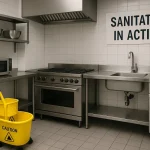Hot water is a must for modern living. In the middle of all the showering, dishwashing, or laundry in your home, the water heater lies at the heart of it all. However, when the time comes for you to choose a new unit, do you know which to buy for your home? Here, your expert in water heater repair in Mesa, AZ, weighs in on whether you should choose an electric or gas water heater for your home.
Understanding How They Work
Although both options provide reliable access to hot water, marked differences between electric and gas water heaters are apparent upon inspection.
Electric water heaters rely on heating elements powered by electricity to warm the water in a tank. These models are straightforward and quiet.
Gas water heaters, on the other hand, are fueled by natural gas or propane. These systems heat water through a burner system. They’re often quicker at replenishing hot water after heavy usage.
Cost: Upfront vs. Long-Term
In terms of cost, the differences between the two models are also significant.
Electric models usually cost less to acquire, making them appealing to the budget-conscious. When it comes to water heater installation, electrical models are favored as having one installed is relatively simple and affordable. Ventilation being a non-factor for electrical models also lends to the affordability of installation.
Gas heaters come with a higher initial cost, especially if your home isn’t equipped with a gas line. However, operational expenses tend to be lower in areas where natural gas is affordable. Over time, the savings on energy bills can offset the larger initial investment.
Efficiency and Performance
Electric heaters are highly efficient in heat transfer, losing little energy. They work well in homes where hot water demand is moderate or spread throughout the day. However, they’re slower at heating water, which can be a drawback for larger households.
Gas water heaters shine when it comes to recovery rates. They replenish hot water quickly, making them ideal for families with high usage or back-to-back showers. However, some energy is lost during operation, making them slightly less efficient overall.
Installation and Space
Electric units are compact, versatile, and offer flexible installation options. They are the perfect choice for small homes or apartments looking for water heater replacement.
Gas models require ventilation to safely expel combustion gases. This makes installation more complex and limits placement options, especially if your home lacks existing venting.
Safety and Maintenance
Electric water heaters have fewer safety concerns compared to gas-powered models. They don’t produce carbon monoxide or require a pilot light, reducing the risk of accidents. Maintenance is minimal, with few components prone to failure.
Gas heaters demand more vigilance to ensure safe operation. Combustion gases need to be vented properly, and the pilot light must remain functional. Regular inspections are key to preventing leaks and maintaining safety. While these systems are generally reliable, they require more attention than their electric counterparts.
Environmental Impact
Electric water heaters are the cleaner option as they do not produce direct emissions. Their environmental footprint shrinks even further when paired with renewable energy sources like solar panels.
Gas heaters, especially high-performance models, can be energy-efficient. Some modern units include features to reduce energy consumption and emissions, but they still contribute to greenhouse gases. Your decision may hinge on your household’s priorities regarding sustainability.
Making the Right Choice
Electric water heaters suit smaller homes, moderate usage, and spaces where installation flexibility is key. They’re straightforward, reliable, and environmentally friendly when used with green energy.
Gas models are better for larger households or anyone who values quick recovery times and lower operational costs. They excel in performance but require more planning and maintenance.
What Happens If You Choose Poorly?
Choosing the wrong water heater can lead to dissatisfaction and more. You can suffer from higher costs due to retrofitting if your home does not have existing gas lines. Conversely, an electric unit in a high-demand household may struggle to keep pace, leaving you frustrated and inconvenienced.
The right choice balances your home’s infrastructure, water usage patterns, and budget. In addition, should you go for a tankless water heater replacement, be sure to seek professional assistance so you can avoid wasting money and unwanted risks.
A water heater is a crucial part of a functional home. By carefully evaluating your household’s needs and consulting a professional when necessary, you can choose a system that serves your needs exactly.







